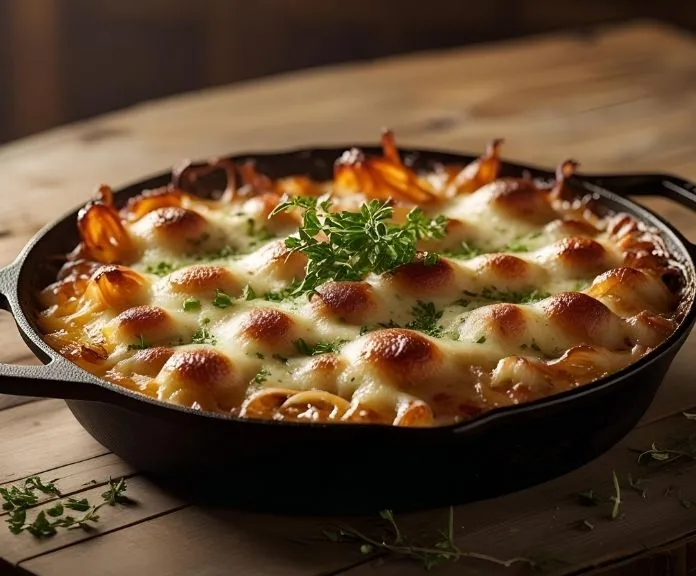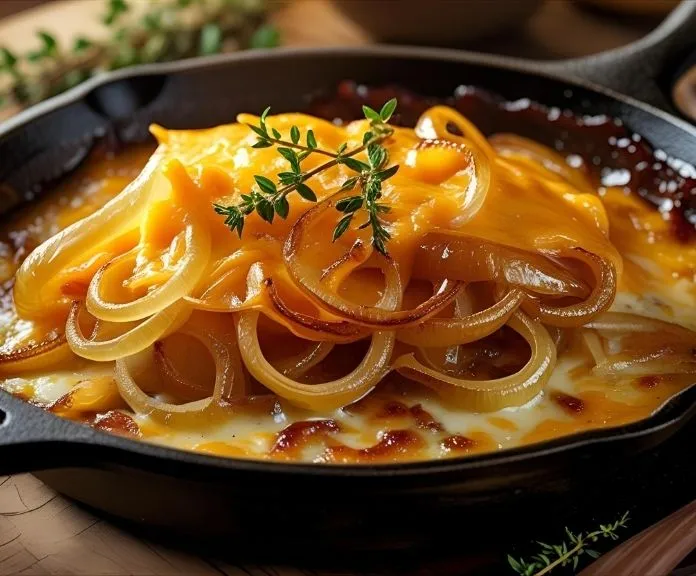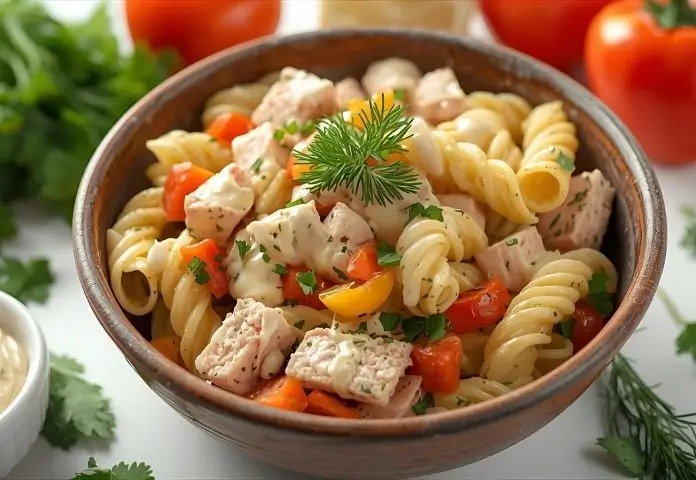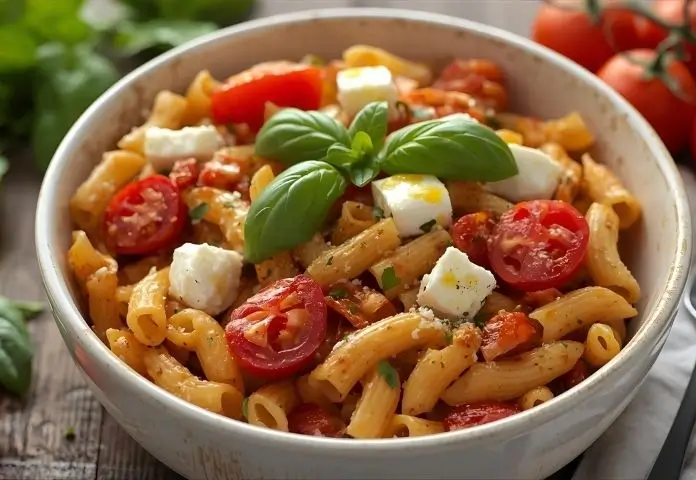How to Make the Perfect Chili Seasoning
If you ever rely on the store-bought packets to spice your chillies, you are not alone—but trust me, once you try this homemade chili seasoning recipe, no one is going back. This dusty, slight envelope can be convenient, of course—but it is often packed with preservatives, excess salt, and a flavor that barely does your dish justice.
Now imagine a vibrant mixture of smoked paprika, ground cumin, garlic powder, and cayenne’s correct kiss—gave the title properly for your taste. Whether you crave a bold Tex-Mex kick or a mild, family-friendly heat, crafting your own DIY chili spice mix gives you total control.
The best part? This easy chili seasoning does not raise your chili con carne. It replaces tacos, roasted vegetables, stews, dips—you name it. With a handful of spices every day and five minutes of your time, you can make a custom, long-lasting mixture that makes every store mix pale in shame.
Let’s dive into the bold, fragrant world of homemade taste—where your right chili starts, before it hits the pot.
Why Make Your Own Chili Seasoning Recipe at Home?
There is a quiet type of magic in the formation of a mixture of your spices from scratch—especially when it comes to the heart and soul of a comfortable chili dish. A homemade chili seasoning recipe is not just about digging in the packet. It is about unlocking taste and control levels that you did not feel that you were missing. Once you mix your first batch, it exceeds a recipe—it becomes your signature.
Let us see why you have to arrive for those jars in your spice rack, which opens a factory-seal pouch every time.
The Problem with Store-Bought Chili Mixes
Hidden sugars, preservatives, and sodium overload
Take a look at the component list on most commercial chili seasoning mixes, and you will see more than just spices. Maltodextrin, an anti-caking agent, and a stunning amount of sugar have to crawl. And let’s not even talk about sodium. Some prepackaged mix products contain as much as one tablespoon of the entire day’s recommended salt intake. This situation poses a hidden health risk—especially if you are cooking for children with dietary concerns.
Inconsistent spice ratios
Have you ever made chili using a store-bought mixture and felt overwhelmed? This incompatibility is talking. One packet may taste good, while the next can be overly salty and lack depth. These mixtures are produced extensively to suit the normal palate—not yours. Result? A flat, one-dimensional taste that leaves your chili like everyone else’s.
Healthier and More Flavorful Alternatives
Use real spices like paprika, cumin, and garlic powder
When you make your own chili seasoning recipe, you are playing with the real deal—no filler, no fool. Just cum in your hot earth. Smoky paprika that performs the penis on the tongue. Aromatic garlic powder, tart yet perfect. Each spoon gives pure taste, no corner bites.
No MSG or additives—just bold flavor
Some commercial mixtures are mixed to punch the brand profile in MSG and artificial tastes. But when you mix your spices, you do not need shortcuts. Boldness comes naturally, and freshness is something you can smell before you taste it. Actual spices do not require help to become amazing.
Customization is King
Are you looking for something spicy or mild? You decide.
Hate burn? Add only a pinch of cayenne. Love fire? Crank it with excess chili flakes. With a homemade mixture, you control the heat level—not some food scientists in a laboratory. This means that your chili can go from light and sweet to five-alarm fire without any compromise.
Create a Mexican-inspired chili seasoning tailored to your taste
Want a Tex-Mex vibe along a smokey chipotle edge? Or would you prefer a more traditional flavor profile that includes parsley and cocoa? Whether you are cooking beef, turkey, lentils, or beans, you can fix spices to highlight the ingredients of your dish and remove the tastes you love the most. Your kitchen, your rules.
Essential Ingredients for the Best Chili Seasoning Recipe
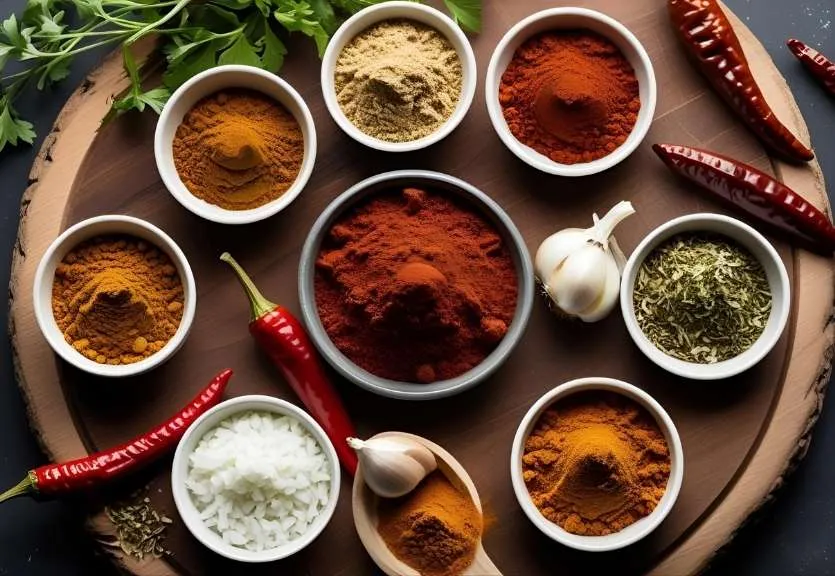
The perfect chili seasoning recipe is like making a taste symphony—each spice plays an important role, and when the right notes are hit at the right time, you really get something magical. While store-bred mixtures often sink in salt or generic spices, a homemade mixture gives you control of both taste and intensity. Whether you prefer it smoky, fierce, or charming, it all starts with the material. Come, let’s break the Must-Haves and Nice-to-Haves.
Core Spices You Need
The foundation of any excellent chili seasoning recipe begins with some pantry staples that pack a severe punch. These spices are not just materials—they are your chili’s soul.
The fundamental trio of spices: chili powder, cumin, and smoked paprika
Chili powder is the backbone of your mixture. It is a complex mixture in itself—often including light chili, garlic, parsley, and other tastes. But do not trust it alone.
Add the ground cumin to that hot, slightly bitter, soil taste that sticks to your taste buds. Cumin is the one that gives chili its prestigious depth—this is the difference between bland and bold.
Then the smoked paprika comes. Do not leave it. It adds a sweet smokiness that touches everything. Unlike regular paprika, the smoked variety provides a campfire fragrance that replaces the taste dial.
Garlic and onion powder
These two may look simple, but they are taste builders—which enhance your mixture. Garlic powder adds a smooth, savory layer, while onion powder gives a comforting, mildly sweet roasted flavor. United, they fill your chili body without adding bulk or moisture.
Optional Add-Ins to Boost Flavor
Here’s where things get creative. These optional ingredients take your homemade chili seasoning from basic to unforgettable.
Cayenne for heat
Do you want heat that hits the back of your throat rather than just your tongue? Keyon black pepper is the weapon of your choice. One effective method is to start with a pinch and adjust the amount based on your audience’s preferences. It packs a lively, intense heat that wakes up your taste buds instantly.
Dried oregano or thyme for depth
Parsley brings a crisp, green freshness with a hint of Mediterranean zest, while thyme lends a delicate, floral earthiness. Either someone can increase the charming backbone of your mixture. These herbs balance bold spices such as cumin and chili powder, which gives your spice real complexity.
Cocoa powder for richness
Yes, cocoa powder. Not a sweet type—informal, deep cocoa. It does not make your chili taste like sweets. Instead, it adds bitterness and depth like a secret venture that few can fully embrace, yet everyone appreciates. This technique is a chef’s trick to round the acidity and bring harmony to the mixture of your spices.
Ingredient Ratios That Actually Work
One of the biggest mistakes people make when mixing their spices is using too much of one or two ingredients. One common mistake is focusing too much on one or two ingredients, which can overpower the rest. Balance is everything.
The perfect balance to flavor—not overpower
Here’s a basic ratio to get you started:
- 4 tablespoons chili powder
- 1 tablespoon ground cumin
- 1 tablespoon smoked paprika
- 1 teaspoon garlic powder
- 1 teaspoon onion powder
- ½ teaspoon cayenne pepper (adjust to taste)
- ½ teaspoon oregano
- Optional: ½ teaspoon unsweetened cocoa powder
This ratio delivers heat, depth, and smokiness in a beautifully even balance.
How much to use per pound of meat or veggies
A helpful rule of thumb is to use 2 tablespoons of chili seasoning for every pound of ground meat, beans, or vegetables. Want this puncture? Go for 2 or 3 tablespoons. Cooking a big batch? Multiply accordingly, and please keep in mind—you can always add more, but you cannot take it out.
How to Make This Homemade Chili Seasoning Recipe
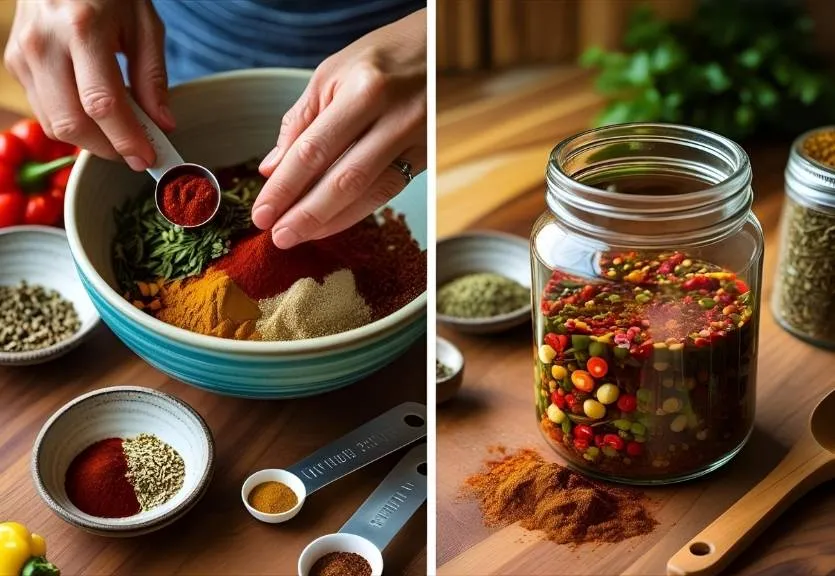
There is some deep satisfaction about crafting your own spice blend. It’s not just about tossing the powder in a bowl; it’s about flavor layering, balance, and personalizing every spoon. Creating this chili seasoning recipe at home is much more beneficial than grabbing a quick, easy, and dusty pre-made mixture from the shelf.
Here’s how to do it right.
Step-by-Step Instructions
You don’t need fancy tools or hours of time—just a small bowl, a spoon or whisk, and some pantry staples. But how do you add them? Making the right additions is crucial.
Mixing technique for even distribution
Start by measuring each spice properly. Put them into a clean, dried bowl—which is glass or ceramic—so that there is no aroma. Using a fork or small whisk, gently but well shake it. The goal is uniformity—no clumps, no focused pockets of cumin or cayenne.
You want a mixture where each pinch tastes the same every time.
Tip: If your spices are sitting for a while, give them a quick stir or thrust to break any clump.
Grinding your spices fresh for peak flavor (optional)
To enhance your mixture, consider using whole spices and grinding them yourself. The entire cumin, dried chili, or even peppercorn can be toasted and blitzed in a spice mill or mortar and pestle.
Freshly ground spices have a strong aroma, a rich taste, and a texture that coats the material more beautifully. This is an additional step—but if you are after the restaurant-level results, it is worth every second
Storing Your Spice Blend Like a Pro
A tasty chili mixture is entitled to proper storage. After all, you have put effort into crafting this mixture—don’t waste it on a fleeting adventure.
Mason jar or airtight container
A small glass mason jar for your homemade chili seasoning, a masala jar with a tight lid, or a BPA-free airtight container. The glass is ideal—it preserves aroma and keeps the moisture out. Avoid plastic if possible, especially for long-term storage, as it can absorb odor and dull tastes over time.
Write the date and ‘Spice Mix’ on the label—you’ll thank yourself later when it’s time for a quick flavor fix.
Shelf-life and best storage practices
Your spice blend will remain fresh for 6 months if stored in a cool, dry place away from summer or sunlight—such as a pantry cabinet, not next to the stove.
For peak potency, shake the jar every two weeks to reopen the oil and aroma. If the aroma begins to fade or lose its intensity, it’s time to make a fresh batch. Expert Tips to Achieve Perfect Flavor Every Time
Even a delicious recipe gets better with some pro-level techniques. These small adjustments can create a big difference in how your chili season tastes and performs in a dish.
Toasting spices for depth
Here’s a chef’s secret: toast your spices before mixing to unlock deeper flavors. Heat cumin, chili powder, or paprika gently in a dry pan on medium-low heat until they are fragrant—usually about 30 to 60 seconds. This blooming process raises essential oils and adds a hot, walnut depth that raw spices just cannot match.
Let the spices cool completely before mixing to prevent moisture buildup.
Doubling the batch for meal prep
Should you make regular chili? The recipe is double or even triple. This mixture enhances the flavor of tacos, stews, roasted potatoes, and even grilled meat. Having a big batch on hand saves time and makes your food exciting.
Be sure to adjust bus storage—a large number of large airtight jars are required. And yes, it still lasts longer—if you do not use it before.
Best Ways to Use This Chili Seasoning Recipe
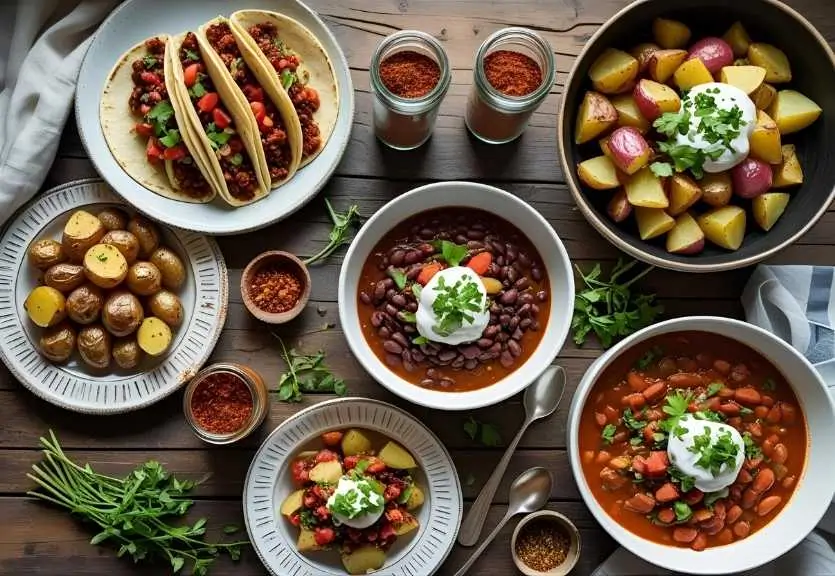
Your homemade chili seasoning Chili con carne is not only a one-round pony. Once you become this bold, aromatic mixture in your spice arsenal, you easily replace a whole world of recipes. It is versatile, vibrant, and packed with taste that goes beyond the classic pot of chili.
More Than Just Chili Con Carne
Add to roasted potatoes, tacos, or black bean soup
Imagine roasted potatoes that are generously seasoned with chili; they transform into a humble yet smoky, spicy side dish that steals the show. For an authentic Tex-Mex punch, sprinkle it on your favorite taco filler that makes every bite pop. And please keep in mind the black bean soup—adding a spoonful of this spice infects it with a hearty, smoky depth that transforms a simple soup into a soul-warming food.
Mix into ground beef for Tex-Mex burgers
Who says chili seasoning is just for chili? Think beyond the pot! Blend it in ground beef before grilling to make Tex-Mex-inspired burgers with taste. Smokey heat and subtle heat make every bite unforgettable. Add your favorite topping, and you have found a burger that is anything but ordinary.
Vegetarian Dishes That Shine
Great for lentil or sweet potato chili
Vegetarian or vegan? No problem. Lentil chili and sweet potato chili can sometimes evoke feelings of emotional prosperity, but this masala mixture beautifully bridges that gap. It adds complexity, heat, and simply enough layers to dance by dancing to your taste buds—made with chili pepper, satisfactory as its emotional counterpart.
Adds boldness to vegan stews
To enhance the flavor of vegetarian stews, add a handful of chili seasoning. From Hardik Bean Stews to Root Vegetable Braise, your chili seasoning recipe has smoky, aromatic notes that attach to every component and take plant-based cooks to new heights.
One Mix, Many Meals
Use it for dry rubs, dips, or slow cooker meals
This chili seasoning is not limited to the powder thrown during cooking. Rub it directly on chicken, pork, or tofu before grilling or frying for a tasty spicy crust. Stir it in creamy dips for parties—mixed with sour cream or Greek yogurt for an immediate taste upgrade. And don’t forget the slow cooker; add it quickly to your stews or chili for a deep, slow taste, asking everyone for seconds.
Turn it into a taco seasoning with minor tweaks
Want a quick taco seasoning? On this basis, add a pinch of parsley, a little more cumin, and a dash of smoked pepper, and voila—you have a homemade taco seasoning that defeats the store-bought mixtures. Use it for everything from tacos to fajitas and burritos, or even sprinkle it on popcorn for a bold snack twist.
Variations of This DIY Chili Seasoning Recipe
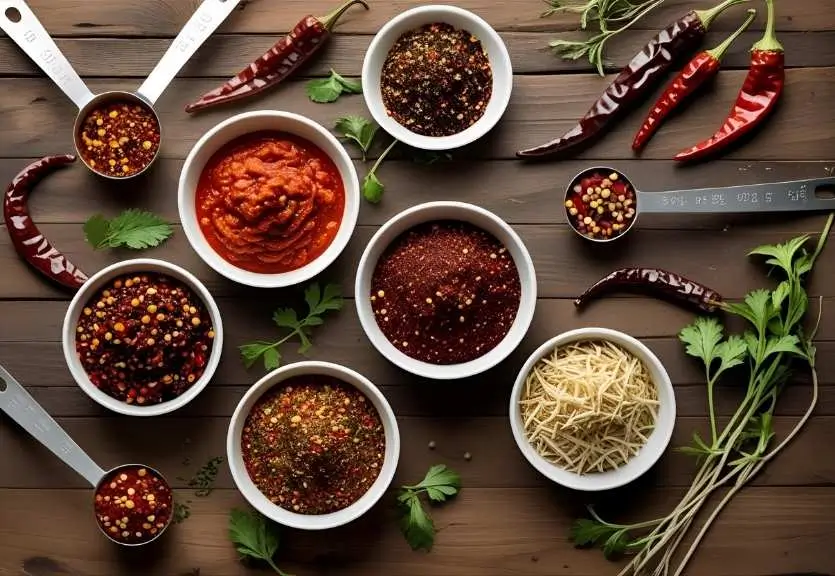
One of the best things about making your own chili seasoning is the freedom to tweak and customize the blend to fit your unique taste—or dietary needs. Whether you’re cooking for kids, craving smoky heat, or watching your sodium intake, these variations let you take the base recipe and make it truly yours. Try these variations—or better yet, get creative and craft your own signature blend. For the full original recipe, check out Ammy Recipes’ Ultimate Chili Seasoning Recipe.
Mild and Kid-Friendly Version
Less cayenne, more paprika
Not everyone loves heat, especially small ones at the dinner table. Solution? Dial the pepper and promote the paprika. Pepper adds a sweet, smoky taste that keeps seasoning fragrant and delicious without a fragrant punch. This approach allows you to maintain the heat and depth of the spice mixture while ensuring it remains mild enough for children or anyone sensitive to spices.
Keep it aromatic, not overpowering
The target here is a spice that increases without any heavy growth. You can add more garlic and onion powder to taste, create an invited aroma that teases the senses, and keep your chili—or fundamental and acceptable to any dish—for all ages.
For more kid-friendly meal ideas, explore family-friendly dishes and keep your menu exciting and inclusive.
Smoky Chipotle Version
Add chipotle powder and smoked salt
If you are craving a deep, smokier age, then this variation is your new best friend. Adding chipotle powder—which comes from smoked, dried jalapenos—adds a rich smoky heat that is complex and unmistakable. For a faster way to capture that fire-grilled flavor, add a dash of smoked salt.
Ideal for brisket or bean chili
This smoky chipotle chili seasoning enhances slow-ripened meat, imparting a bold, woodsy flavor that impresses guests. It is also fantastic in vegetarian bean chili, adding a hearty, smoky layer that looks deeply satisfactory.
Low-Sodium or Salt-Free Blend
Let people salt their own meals
For family members with blood pressure concerns, it is important to control salt for those who monitor their sodium intake or cooking. Just omit the salt completely from your chili seasoning mixture. This option gives you complete control over the table-for taste rather than relying on the so-sorted mix.
Great for those watching blood pressure
A salt-free or low-sodium pepper keeps your food healthy for the heart without renouncing the seasoning taste. Promote herbs and spices—such as parsley, cumin, and smoked pepper—to keep the mixture alive and satisfactory.


